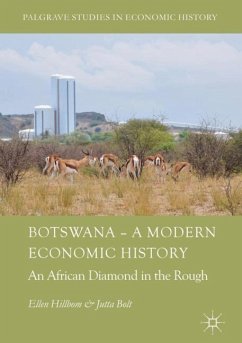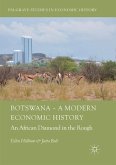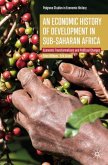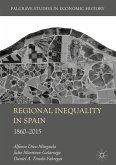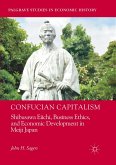Together with Mauritius, Botswana is often categorized as one of two growth miracles in sub-Saharan Africa. Due to its spectacular long-run economic performance and impressive social development, it has been termed both an economic success story and a developmental state. While there is uniqueness in the Botswana experience, several aspects of the country's opportunities and challenges are of a more general nature. Throughout its history, Botswana has been both blessed and hindered by its natural resource abundance and dependency, which have influenced growth periods, opportunities for economic diversification, strategies for sustainable economic and social development, and the distribution of incomes and opportunities.
Through a political economy framework, Hillbom and Bolt provide an updated understanding of an African success story, covering the period from the mid-19th century, when the Tswana groups settled, to the present day. Understanding the interaction over time between geography and factor endowments on the one hand, and the development of economic and political institutions on the other, offers principle lessons from Botswana's experience to other natural resource rich developing countries.
Through a political economy framework, Hillbom and Bolt provide an updated understanding of an African success story, covering the period from the mid-19th century, when the Tswana groups settled, to the present day. Understanding the interaction over time between geography and factor endowments on the one hand, and the development of economic and political institutions on the other, offers principle lessons from Botswana's experience to other natural resource rich developing countries.

